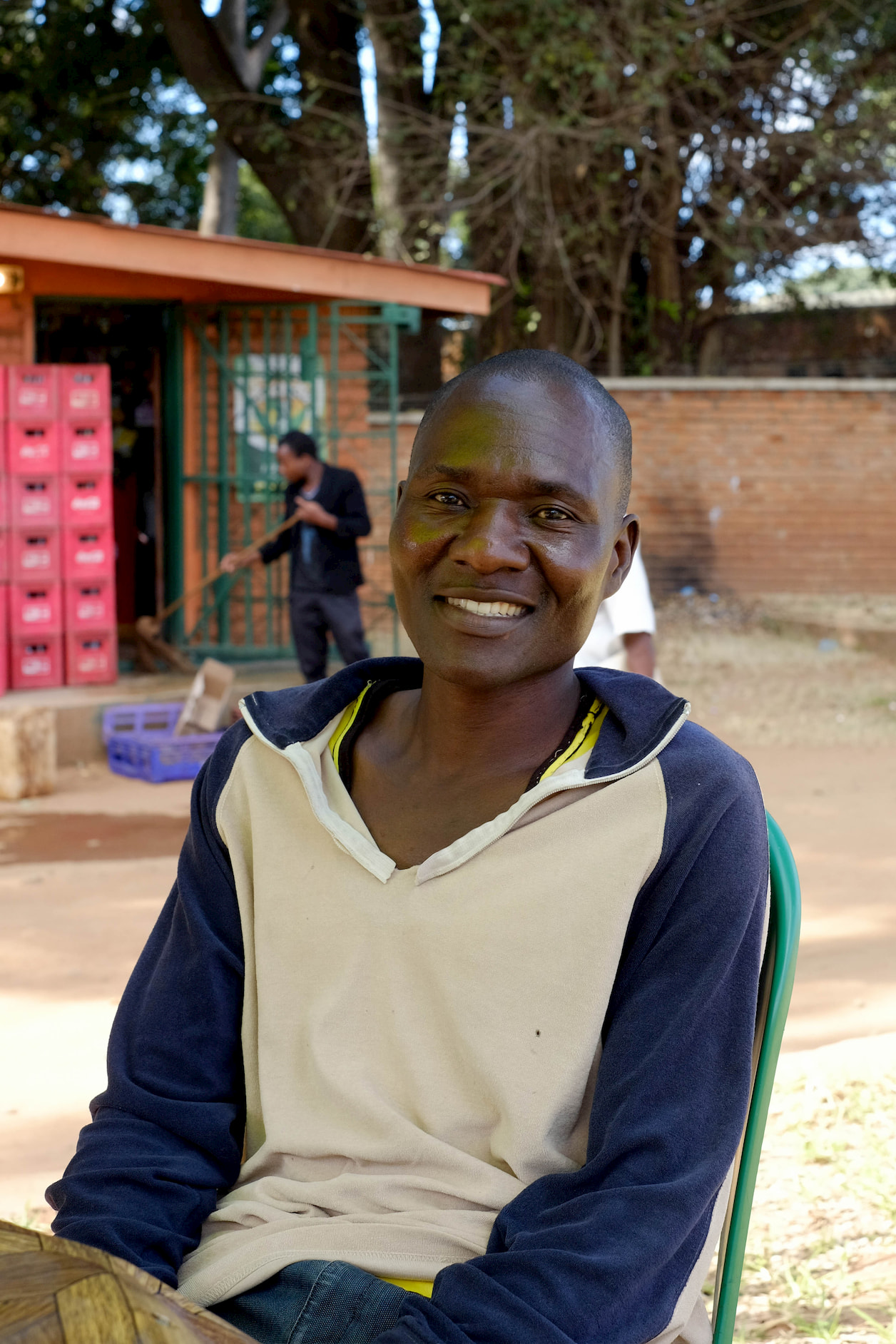Time to read - min

Photo of Abraham enjoying his first chips in 19 years at a nearby café
Malawi Man Released, Nineteen Years After Being Sentenced to Death
Nineteen years ago nearly to the day, Abraham Galeta was sentenced to death for the murder of Philip Machesa, his stepfather. On May 26, 1996, Machesa came home drunk and began to beat Abraham’s mother. Machesa had beaten her many times before, but this time was worse. She believed he would kill her, and called out to the neighbors for help. Word quickly traveled to Abraham (then 20 years old), who rushed to his mother’s house with his uncle Zaima. Instead of apologizing, Machesa began to berate Abraham for eating his food, then grabbed a chain and hit him. Furious, Abraham grabbed the chain and hit him back, beating him until he fell. Machesa died from his injuries. One witness claimed that Zaima also took part in the beating, and on that basis, both men were condemned to die.
On April 8, 2015, the Malawi High Court agreed to hear mitigating evidence in support of a reduced sentence for both defendants. Surprisingly, the state requested that the Court re-impose the death sentence. This was the first case in which the state sought the death penalty since the Malawi courts began holding resentencing hearings pursuant to the High Court’s judgment in Kafantayeni and Others v. Attorney General. (See my April 24 blog post for more on this).
With the support of the Cornell Human Rights Clinic (including law student Aysha Valery, who assisted in drafting the written submissions to the court) and Reprieve fellow Tom Short, legal aid lawyer Chimwemwe Chithope-Mwale argued persuasively that Abraham’s actions had been provoked by Machesa’s vicious beating of his mother.
But the prosecution refused even to entertain the argument that Abraham deserved compassion for what he had done. In essence, I believe this case is as much about the widespread acceptance of violence against women as it is about the death penalty. If domestic violence were not tolerated in Malawi, it is hard to imagine how the state could possibly request the death penalty for a crime committed under these circumstances. Indeed, in case after case in which domestic violence is described in judicial proceedings, it is presented as a “quarrel” between husband and wife. Sometimes it is said that the husband “picked a fight” with his wife. This quaint phrasing belittles the gravity of domestic violence and the real risk to human life that it presents.
Thankfully, the Malawi High Court rejected the state’s arguments, and decided that Abraham had served enough time for his crime—although Zaima must serve an additional year before his release. Abraham walked out of prison yesterday.
Abraham is still young enough that he may be able to marry and have children. Soon, Zaima will join him in their village, and one hopes that the two men will live long, healthy, and productive lives. The Malawi High Court is to be commended for this outcome. As of today, the Malawi courts have resentenced 26 prisoners who were originally sentenced to death under the now-unconstitutional mandatory death sentencing regime. Sixteen have been released, and another nine have been given determinate sentences. None have been resentenced to death or life imprisonment. One hopes that this trend will continue.